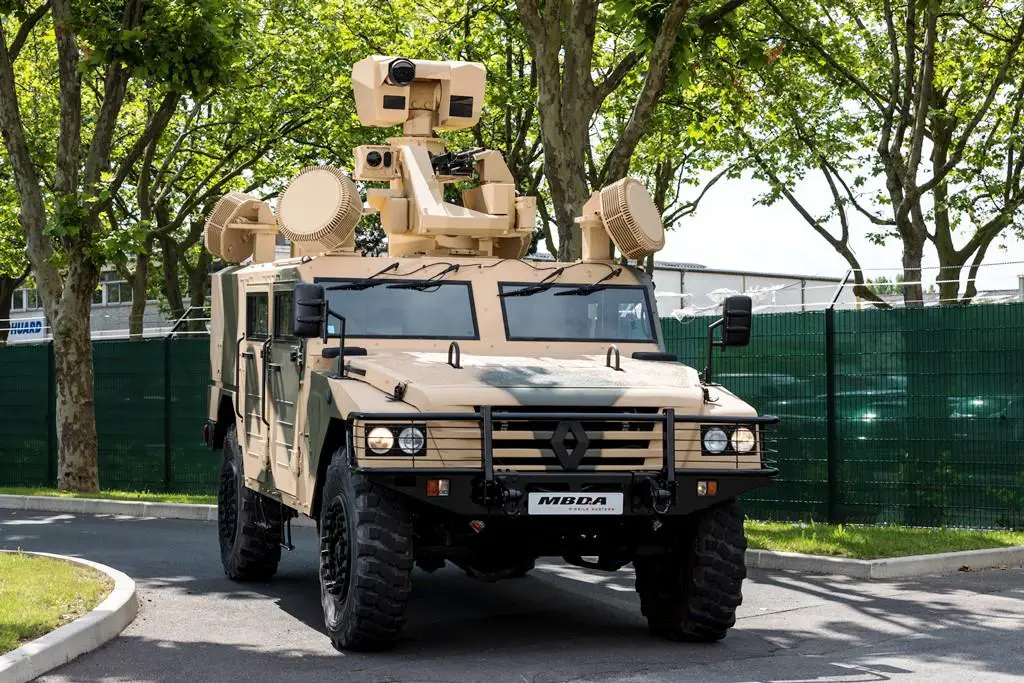As Europe’s leading air defence provider, MBDA is uniquely able to offer customers a proven, flexible and integrated C-UAS system. One that is available today, and can evolve into the future. The Sky Warden system manages the full C-UAS kill chain from detection to neutralisation and is designed to operate both as an integrated component in a layered air defence architecture, or in a stand-alone configuration. Sky Warden can be vehicle mounted or dismounted.Sky Warden embodies MBDA’s deep knowledge of the engagement process, systems integration, of all categories of effectors and their next evolutions, and of effects management in the air defence domain. Sky Warden utilises operationally-proven building blocks within a modular open architecture that can be adapted to end-user requirements or to plug and play emerging and future novel sensing and effector technologies. MBDA C-UAS solutions have already been successfully demonstrated to customers.
The modern C-UAS threat is varied, rapidly evolving, and poses a multiplying number of complex scenarios that require defending against. This means there is no single sensor or effector that can meet the modern or future C-UAS requirement. Instead Sky Warden utilises a networked eco-system of constantly evolving sensors and effectors, drawn from MBDA’s wide experience in air defence and effects management, to match the UAS threat. Being modular, scaleable, and evolvable, Sky Warden is able to effectively and appropriately neutralise all classes of UAV, from small Class 1 micro-UAVs to large tactical UAVs, as well as other traditional air threats. At its core is a command and control (C2) system that performs effects management – co-ordinating this eco-system of sensors, soft-kill effectors, and hard-kill effectors to defend armed forces units or sensitive sites across a large protection perimeter.

The Sky Warden is fully modular, therefore a customer can pick-up the subsystems of choice in order to tailor the overall system to the threat he needs to face. The Sky Warden installed over a Sherpa 4×4 armoured vehicle provided by Arquus. Between the two forward antennas we find a Hornet Lite remotely controlled weapon station armed with a 7.62 mm machine gun. At the centre a mast was carrying the HELMA-P middle power laser weapon from CILAS, capable to neutralise a drone at over 1,000 meters and damage its optics at 3 km. Four Rada MHR RPS-42 AESA antennas, Rada MHR RPS-42 each covering 90°, capable to detect a nano-UAS at 5 km and a medium-size UAS at 25 km range. These can be replaced by Saab Giraffe G1X radar that might also be installed on the roof. At the back of the vehicle we find the container/launchers of the hard-kill UAVthe passive RF suite and the jammers. The Mistral man-portable air-defense system was installed on a second vehicle.
MBDA is also involved in the European JEY-CUAS (Joint European sYstem for Countering Unmanned Aerial Systems) programme, which was selected among the many proposals as part of the European Defence Industrial Development Programme (EDIDP) 2020. With a total cost of € 15,003,473.08, the European Union proves a maximum contribution of € 13,500,000.00. The programme sees the participation of 38 European companies, MBDA being the third contributor, after Leonardo and Indra. The Sky Warden is also the base of the system promoted by a consortium including MBDA together with Naval Groupe and Hologuarde which is competing for the PARADE French anti-drone system, a bid launched by the French Defence acquisition directorate (Direction Générale de l’Armement, DGA). One of the aims of the Parade programme is to provide an effective anti-drone system to be used during the Olympic Games 2024 that will take place in Paris and neighbouring areas.
MBDA at @cogeseurosatory?focus on Sky Warden, the integrated C-UAS system provided by MBDA and its partners to effectively detect and neutralise any form of UAS threat, from tactical drones to mini drones. pic.twitter.com/WS67Jc675x
— MBDA (@MBDAGroup) June 16, 2022















